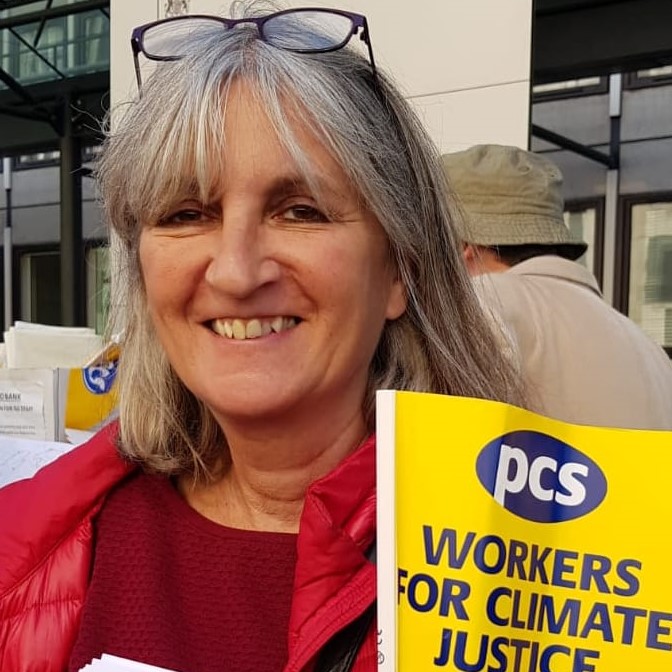
In her latest climate blog, Sam Mason argues that Labour must have a strategic climate plan from day one of taking office. The watering down of Labour’s recent commitment to block new North Sea oil and gas licences for reasons of political expediency bodes ill for a green future.
AS THE MET OFFICE ISSUED THEIR FIRST HEAT WAVE WARNING of the summer and pictures of New York engulfed in smoke from the “out of control” Canadian wildfires fill our TV screens, you would think people were starting to join the dots on climate change. Indeed, the announcement that Labour will block new north sea oil and gas licences was a positive step that along with the commitments for a green prosperity fund seemed to show the party was doing just this.
Unfortunately, what we have seen is that a week is indeed a long time in climate politics. Both commitments have been melting away in tune with the rising thermometer and the Labour Party is bowing, not to the realities of climate change, but political expedience.
Watering down the committment on North Sea
oil and gas licences is bowing to
political expediency
The GMB’s General Secretary Gary Smith was quick to call out the oil and gas announcement as “naïve” and populist. A strange statement given we are on the verge of exceeding the Paris climate agreement ‘limit’ of 1.5C degrees of global heating in the next few years, which will and does threatens all workers.
Unite similarly attacked the announcement as headline grabbing and a promise of “jam tomorrow” but, with an important difference. Unite emphasised need for detailed transition plans for workers in the North Sea led through a process of collective bargaining that guarantees jobs, pay and conditions for all workers and supporting industries. A demand they are right to insist on together with public ownership of energy.
IN THE FIGHT TO TACKLE CLIMATE CHANGE – life and livelihoods cannot be decoupled. Whether that is for workers in the north sea or the millions in East Africa who have been impacted by the worst drought for 40 years. A war of words on yet to happen pledges of action won’t put food on the table for any worker or address the urgent need to take serious action to decarbonise the economy.
Rachel Reeve is back-tracking on Labour’s
green prosperity spending
As the oil and gas ‘pledges’ get watered down, Rachel Reeves has decided to start rolling back on the party’s green prosperity spending commitment. Far from fiscally responsible, it shows that Labour really isn’t thinking about the kind of detail and plan trade unions are calling for in the much-needed energy transition. Further, it helps to re-enforce the cynicism that unions have in the promised jobs of renewable energy.
The science of climate change doesn’t care about fiscal responsibility, and its impacts on the economy will only increase the further we are from taking action. Damage to infrastructure and social consequences such as on health all bring additional costs and burdens on already struggling public services. Investment in the work needed for both mitigation and measures to adapt to the impacts of climate change will not only be good for the UK, but also globally.
While the UK has reduced its greenhouse gas emissions in the transition from coal to natural gas in the 1980’s it remains one of the largest contributors to cumulative CO2 emissions. This underlines the historic responsibility of the UK to fulfil its “fair share” in climate funding for countries on the frontline of climate impacts, namely in the global south, and to ensure a transition rooted in justice that recognises the disastrous impacts on communities here of the past deindustrialisation. This funding means having a plan and putting serious investment behind it from day one.
Reversing Labour’s commitment to nuclear weapons could free up billions for strong public services and a just transition for workers
And if Rachel Reeves is concerned about where they will find the money from, there are two obvious places they could start with – nuclear. Reversing the commitment to nuclear weapons and Trident renewal would free-up billions to invest in energy transition, warm homes, strong public services and a just transition for workers that would secure jobs and ensure protections of livelihoods.
This second is removing the fetish with nuclear power, the most expensive form of energy. Whilst Keir Starmer has said the Tories have been a “shambolic failure” in delivering on nuclear energy, the historic failure of nuclear power projects to deliver on time and budget should be enough in itself to say it provides neither energy or climate security. Hinkley Point C backers EDF have announced further delays and billions of cost increases.
Keir Starmer asserting such delays would be avoided because they would have a “strategic plan with real purpose” is to the contrary. Any plan including nuclear power would continue to add to the delays in accelerating the renewable energy transition, developing storage capacity, and reducing energy consumption by transforming buildings and public transport. All of which would be jobs rich.
In what could be a long, over hot summer, the only ‘lobby’ the party should be listening to is the climate, which is telling us through our lived experience of climate impacts not least on workers across the globe, we are running out of time for politician’s lack of strategic vision on this.

